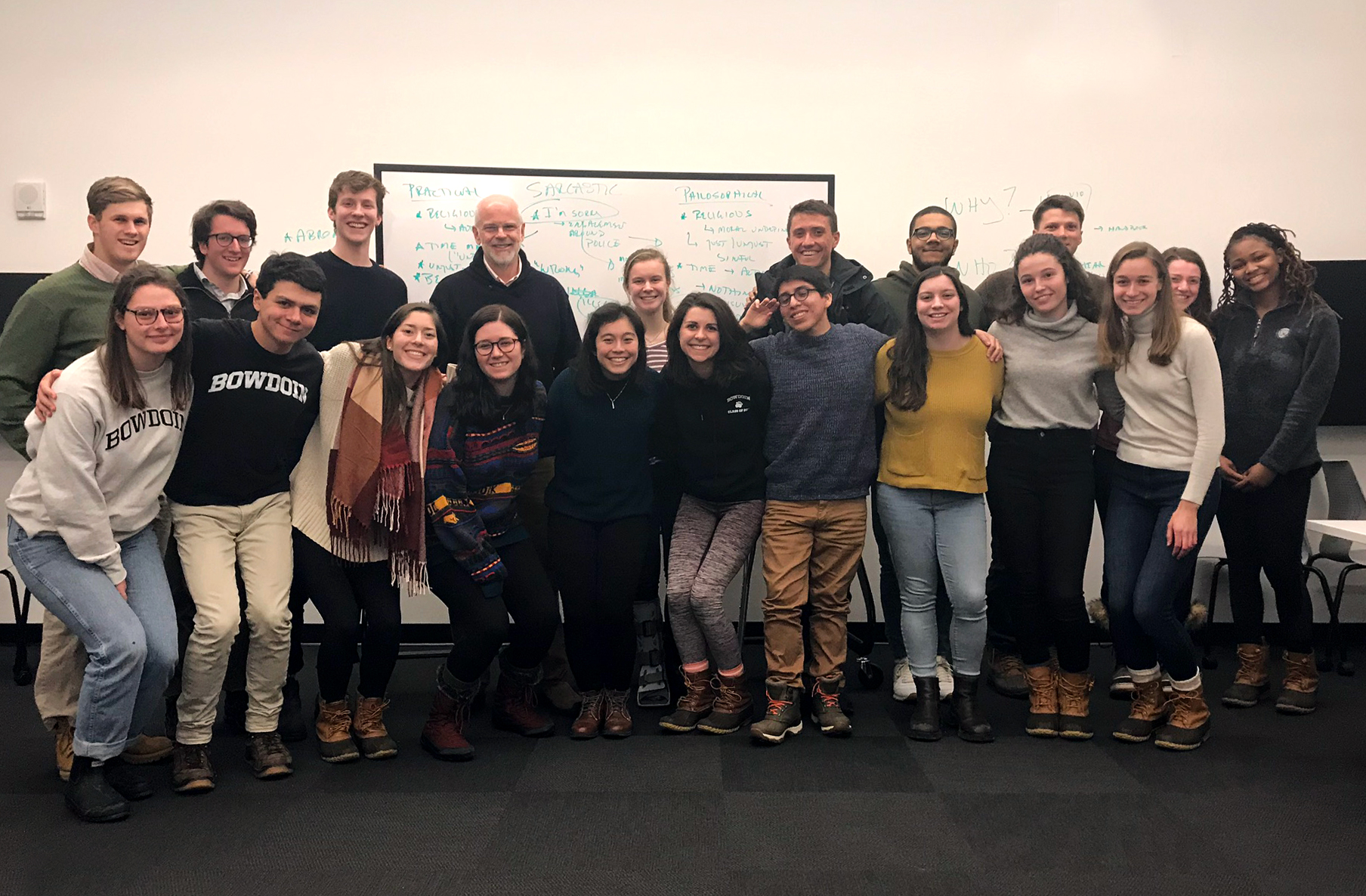College offers first annual MLK day programming
January 25, 2019
 Nicole Tjin A Djie
Nicole Tjin A DjieFor the first time when the holiday fell during the semester, the College did not hold classes on Martin Luther King Day. In lieu of beginning the semester on Monday, students were encouraged to participate in programming that focused on the life and legacy of Dr. Martin Luther King Jr. The proposal to start the semester after the holiday was made by former College President Barry Mills in January of 2015 and acknowledged by students in an open letter to the community that called for administrative response after bias incidents in 2013 and 2014. 2019 was the first year that the policy went into effect—Martin Luther King Day, which is observed on the third Monday of January, has fallen a week before the start of the spring semester since 2015.
Although the College organized celebratory programming—such as an annual keynote—prior to 2015, students often had to choose between such events and class. In agreement with the College’s policy regarding religious holidays, students were excused from class if they chose to observe the holiday. However, many students did not opt out of classes.
“There wasn’t any real interaction with the actual ideas that Martin Luther King presented and how we’ve either gone astray or maybe we’ve achieved, some may argue, the vision of the just society Martin Luther King spoke about,” said Tess Chakkalakal, Peter M. Small associate professor of Africana Studies and English.
Lack of engagement seemed to derive from a common uncertainty of how to honor Dr. King. Unlike some religious and national holidays, Martin Luther King Day does not have universal practices or traditions associated with the holiday.
“Columbus Day, there are sales. Presidents Day there are sales. There is nothing that people do to observe those days. What is Martin Luther King Day?” Chakkalakal said.
The lack of nationally recognized traditions resulted in flexibility to create programming without expectations or boundaries. A small group of administrators, comprised of members from the Dean of Students Office, Hawthorne-Longfellow Library, the Office of Student Affairs and the Joseph McKeen Center for the Common Good, planned the programming. The group found a balance between community and individual engagement. Public events included the projection of Dr. King’s “I Have a Dream” speech during lunch in Thorne Hall and film screenings in Hawthorne-Longfellow Library. Private events included special classes.
President Clayton Rose called on faculty to teach classes related to Martin Luther King Jr. Rose himself decided to teach a class that engaged with Dr. King’s “Letter from Birmingham Jail” which led to an open invitation to all faculty members to lead a class that engaged with Dr. King’s work.
Students were invited to pre-register for five special classes via email, which were offered by faculty of different disciplines. Topics ranged from examining African-American art co-led by Assistant Professor of Art History Dana Byrd and Kinaya Hassane ’19 to a discussion of Shelby Steele’s 1990 book, “The Content of Our Character: A New Vision of Race in America” led by Chakkalakal.
Some of the scheduled classes were affected by Winter Storm Harper, which hit New England on Sunday and affected travel plans. One class was cancelled, another was postponed and other classes were smaller than expected due to some students’ inability to make it to campus.
The College’s prioritization of diverse programming for Martin Luther King Day aligns with a nationwide trend, when colleges have taken a lead on defining what the holiday means for students and the public. Every NESCAC has sponsored programs that address the life and legacy of Dr. King. The programs range from keynote addresses to multi-day, themed programming.
“It’s interesting that colleges have taken on the role to help society as a whole determine what it is on this holiday. I think that is a good job for intellectuals,” Chakkalakal said.
“You don’t really think about how this is a day to reflect and think about this history, especially in this historical moment with what is happening racially with our country,” Hassane said.
A focus of the day was the personal tie between King and Bowdoin. The civil rights leader’s visit in 1964 has had a profound effect on Bowdoin alumni and students. After an invitation from a student group on campus, King spoke to more than 1,000 students, faculty and community members in the First Parish Church and then facilitated a small group discussion. The events were recounted by alumni in a video produced by the College and shard with students in an email from Rose on Saturday.
“[I had] the idea of linking the generations of Bowdoin students, students who were here then and the students that are here now and understand the commonality of the points of view,” Rose said of his conceptualization of the video.
The video’s theme of connection and honoring Dr. King was evident on campus throughout Monday’s events.
“It was pretty interesting how our discussion came to how [Dr. King’s letter from Birmingham Jail] is important because it is amazing rhetoric and he’s an amazing person, but also because it has such relevance,” said Brooke Vahos ’21. “A lot of what he was saying relates to current issues in the United States.”
Rohini Kurup contributed to this report.

Comments
Before submitting a comment, please review our comment policy. Some key points from the policy: